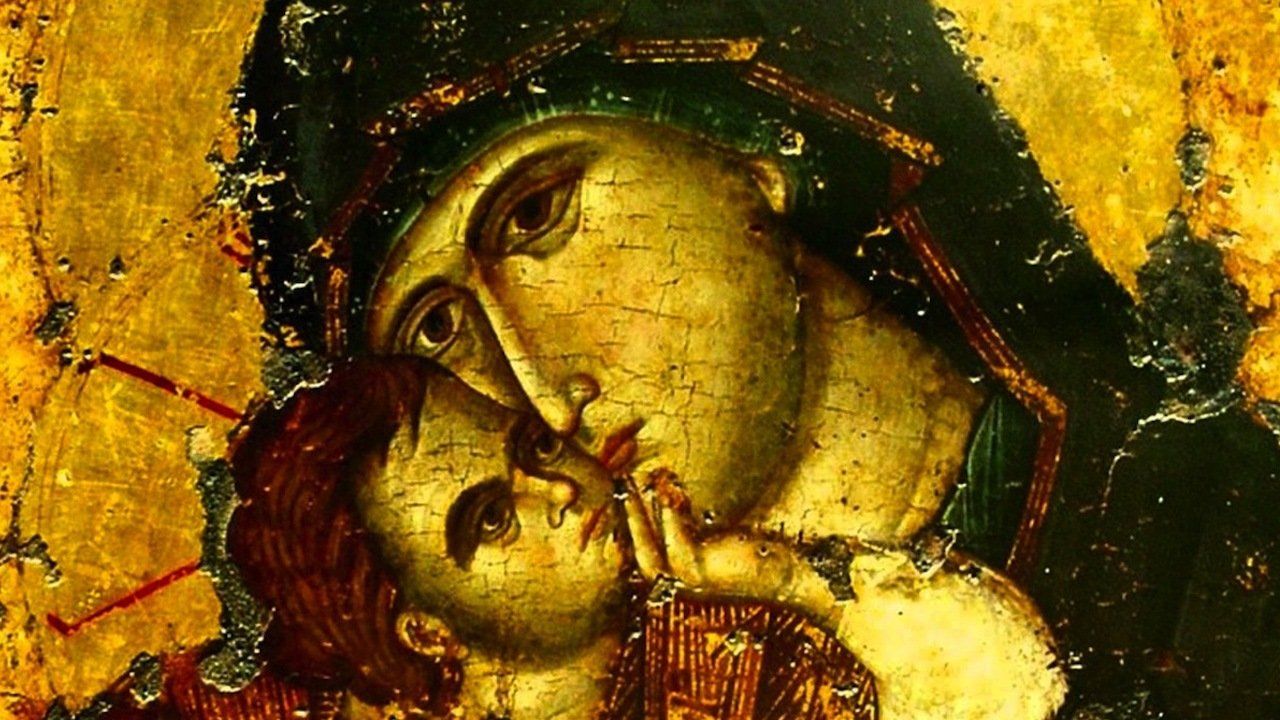ST GREGORY
Palamas’s thought concerning Mary is inspired by an extremely realist view of the divine Maternity, expressed by the dogma of Ephesus; the Incarnation of the Word was brought about in her and by her; the person of Christ is therefore inseparable from that of His Mother. When Palamas, following the tradition of the Fathers and, even more, the Liturgy, applies to Mary adjectives which, biblically, seem reserved for Christ, he is not thinking of the person of Mary taken by itself and, so to say, statically, but of “He who begat God.” For him, as for the whole tradition of the Church, “Mariology” is one particular and necessary aspect of orthodox Christology which asserts both the full divinity and the full humanity of Christ: without Mary, this union could not have been realized in the person of Jesus.
Thus the Mother of God is “the source and root of the race of liberty” (Hom. 14); her body – temple of God – is “the medicine which saves our race” (Hom. 37); “alone, placing herself between God and the whole human race, she made of God a son of man and transformed men into sons of God” (Hom. 37; cf. Hom. 53); “the Virgin Mother alone dwells on the frontier between created and uncreated natures, and those who know God recognize also in her the habitation of the infinite” (Hom. 14; cf. Hom. 53; Hom. 37); it is from her that “the Saints receive all their sanctity” (Hom. 37): “no one can come to God except through her … for it is only through her mediation that He has come to us, that He appeared on earth and dwelt among men” (Hom. 37); being thus at the center of the story of salvation the Virgin is “the cause of events before her time, the leader in the sequence of events thereafter, and the distributor of eternal blessings; she is the thought of the Prophets, the chief of the Apostles, the prop of the Martyrs, and the foundation of the Doctors … she is the summit of the achievement of all that is holy” (Hom. 53); “all divinely inspired Scripture was written for the sake of the Virgin who begat God” (Hom. 57). She enjoyed the particular privilege of being the first to see the risen Jesus (Hom. 18). The temple at Jerusalem was the “type” of Mary, for she is the true “place of God” (Hom. 53), the true throne of the Lord, “for there where the King sits, there is His throne” (Hom. 53); she is the receptacle of the treasure which God granted to men (Hom. 53), the tongs which the Seraphim used to take up the live coal which touched the mouth of the prophet Isaiah, prefiguring the Incarnation (Hom. 57). These epithets applied to Mary, for all their rhetorical and lyrical quality, all refer to her part in the Incarnation; therefore they do not infringe on the worship due to God alone, but rather bear witness to an extremely Christocentric form of piety and conception of history; worship of the Mother is indeed addressed to the God-Man whom she bore. It is only when one considers that worship outside the precise concept of divine Maternity that one strays beyond the biblical and traditional domain.
~Fr. John Meyendorff,
A Study of Gregory Palamas










